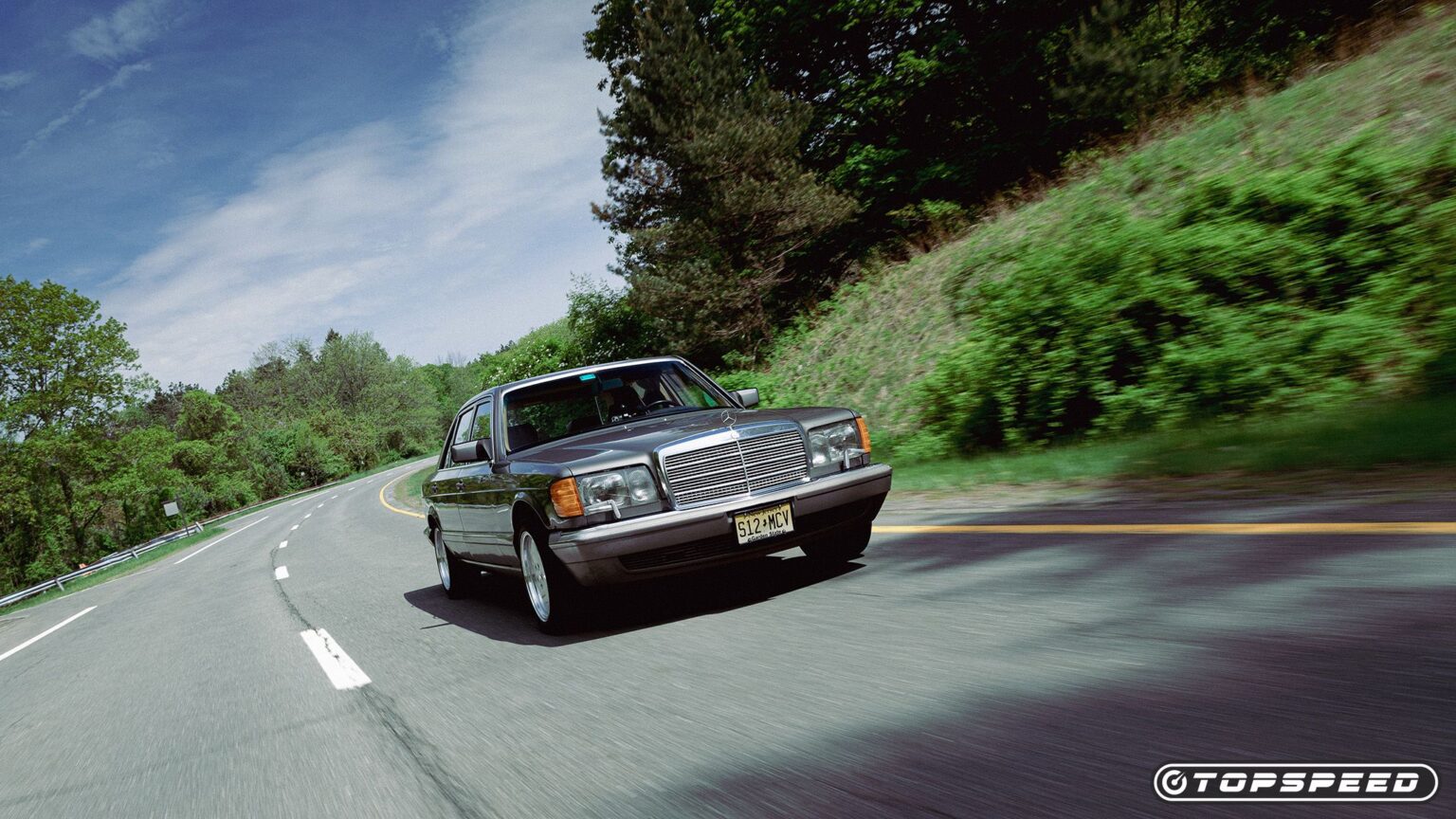In what appears to be a shocking concession to the Trump Administration’s hugely controversial 25 percent tariff placed on the auto industry, classic cars, or cars aged 25 years or older, are surprisingly exempt. After sifting through the official proclamation document declaring the tariffs, a small paragraph clause makes an exception for vehicles older than a quarter of a century.
President Donald Trump issued his industry-wide tariffs as promised, on his so-called “Liberation Day,” slapping a 25 percent tax on all imported automobiles and their related parts, starting on April 2. Although Trump was campaigning around his promise to levy tariffs against foreign automakers and suppliers, that left many enthusiasts wondering it would affect the automotive hobby, particularly with classic cars and the importation of grey-market vehicles. However, it now appears some grace was given to classic car enthusiasts as the tariffs only apply to newer vehicles.
Owners Of Foreign Classic Cars Can Breathe Easy
According to the prose in the annex section of the proclamation, a small paragraph notes an exemption for vehicles imported “at least 25 years prior to the year of the date of entry.” If interpreted correctly, that means cars 25 years or older and their parts won’t be subjected to the huge 25 percent tax. However, they aren’t fully immune, as they’ll still incur a 2.5 percent duty tax upon importation at the port of entry.
If one scrolls down to page 10 in the proclamation, in Annex 1, Section A, subsection a., paragraph (e), the amendment reads:
(e) Heading 9903.94.04 applies to all entries of passenger vehicles (sedans, sport utility vehicles, crossover utility vehicles, minivans, and cargo vans) and light trucks from all countries classifiable in the headings or subheadings enumerated in subdivision (b) of this note that were manufactured in a year at least 25 years prior to the year of the date of entry.
So, in other words, if a foreign car was imported in 2020 and manufactured in 2015, it and its parts are subjected to the 25 percent tax hike. But if it was imported in 2025, but manufactured in 1999, that vehicle and its parts are exempt from the 25 percent tax as it’s older than 25 years, as per the clause above.
Although largely aimed at newer vehicles and the sale of new cars here in the United States, many in the collector and enthusiast space were left wondering what that meant for them. In particular, for individuals who make a living importing grey-market collector vehicles, or vehicles not originally sold here in the States, but are now eligible for importation as they exceed the U.S. Department of Transportation’s federal guidelines and 25-year import rule.
Many thought all vehicles, new and old, and their parts, were going to be subjected to the tariffs. However, that is apparently not the case with this latest amendment.
Speaking with Hemmings, Dmitriy Shibarshin, Director of Marketing for West Coast Shipping, a vetted “door-to-door car import” service, originally expressed his doubts after consulting his sources regarding customs procedures.
“We have received no guidance whatsoever from anyone in customs of the U.S. government. We don’t see any carve out for classic cars,” Shibarshin originally told Hemmings.
But after noticing the 25-year amendment in the proclamation, Shibarshin reportedly changed his stance, noting that he and his colleagues “checked on this with our partner import brokers and all come to the conclusion that classic cars are exempt.”
…But Nobody’s In The Clear Yet, Uncertainty And Instability Still Looms
Despite the reprieve from the classic car community, many are still uneasy about the rapid changes and instability in the entire auto industry, both from massive implementations of disruptive geopolitical and economic policies, and a very unstable presidential administration. Many owners of foreign classic cars and others who make their living specializing in the importation and sale of foreign classic cars.
“A customer flat out told me, ‘This economic climate is paralyzing.’ A down economy isn’t the worst thing, because people with money know how to handle it. If markets are going down or inflation is higher, there are usually reasons for it. But if the economic climate is characterized by chaos, no one really knows what is going to happen day-to-day,” Paul Misencik, owner and founder of Autology Motors, who specializes in customized classic cars, such as resto-modded old-school Land Rovers, also told Hemmings. “The biggest frustration for us and our customers is the unknown.”
TopSpeed’s Take
It’s no mystery that new car ownership, and even used cars younger than 25 years, has and will continue to get more expensive from Trump’s latest tariffs against the auto industry. But if you own and use a classic car for your method of getting about, you’re off the hook for now. And if you had aspirations to get a classic car in your stable, and even fix it up to the point of making it a viable daily driver, that prospect might even be more enticing now, since it’ll be far cheaper to keep on the road than a newer vehicle. And you better do so now, before values skyrocket for cars 25 years or older.
Older vehicles, in many ways, have always been more financially sensible to keep on the road. They’re often cheaper to fix and own, especially now that more modern vehicles are reaching the age of being considered a classic vehicle. For example, all 1990s cars, which are considered by many to be an era when some of the best cars ever made, are now considered classics. And many of them still offer plenty of potential to be classic daily drivers.
Contributing Source: Hemmings
Read the full article here


